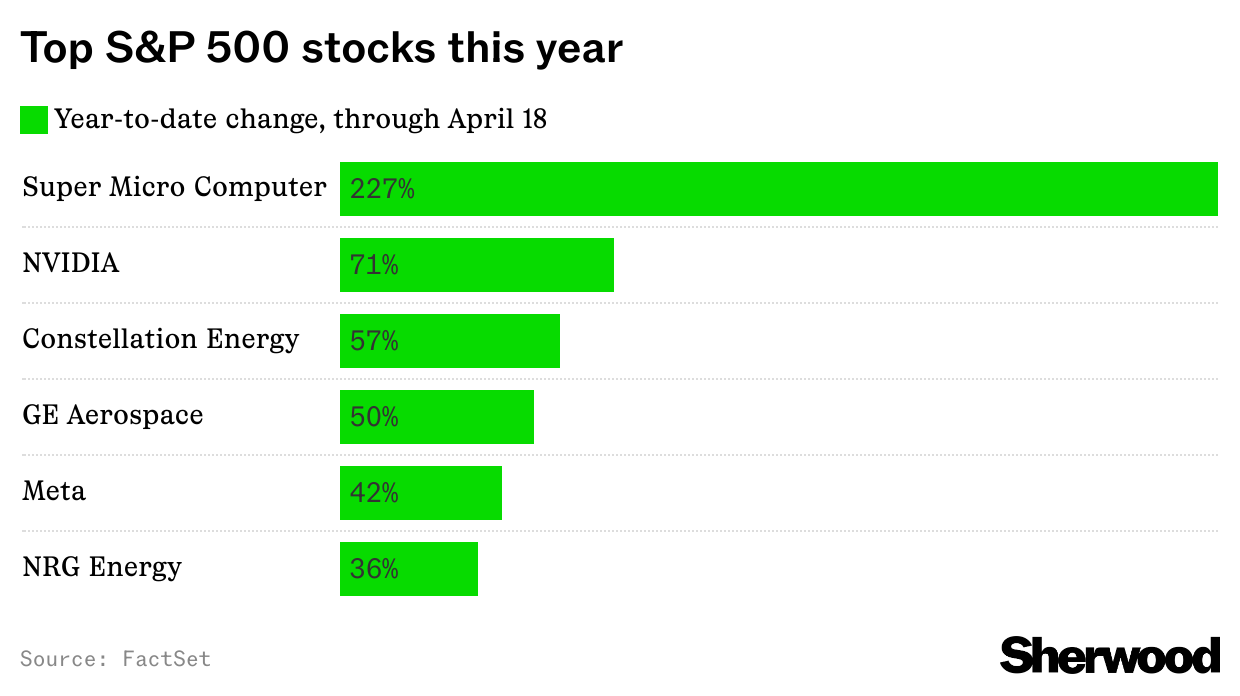Friday Jun.25, 2021
📵 Big Tech's big antitrust moment
_Big Tech's bad news week [AdShooter/E+ via GettyImages]_
Hey Snackers,
We're imaging the moment Netflix execs saw this show come across their desks and said "let's do it." If you've been waiting for a reality dating show featuring people with prosthetic monster faces, "Sexy Beasts" has arrived.
Stocks jumped on falling jobless claims, and other positive signs for the labor market.
Anti
Big Tech is feeling serious heat: feat. six major antitrust bills and a new FTC head
"Not vibes"... Big Tech's current thought bubble. Antitrust issues have dominated the news for a long time, but this week turned up the heat in a big way. Yesterday, a House committee approved sweeping legislation to curb the dominance of Google, Facebook, and their Big Tech frenemies.
- Six-bill package: Not the kind Bezos likes to receive. Of the six bills that were advanced, one hits hardest: legislation that would prohibit Big Tech companies from playing favorites with their own products on their platforms.
- Think: Apple not promoting Apple Music over Spotify in the App Store, and Amazon not favoring Amazon Basics in search results.
- Buuuut: The bills still need to pass the full House to become law, and tech giants are lobbying harder than ever to make sure they don't.
More tech woes... The legislation would also give federal agencies like the FTC way more muscle to block Big Tech acquisitions of startups (like FB & Instagram nine years ago). Last week: Big Tech critic Lina Khan was sworn in to lead the FTC, the US gov't agency that enforces antitrust laws.
- Google and Apple say the bills could bring significant security concerns, while making the user experience worse.
- While the legislation has bipartisan support, critics in Congress say it would give too much power to the government in Big Tech operations.
Antitrust just got a whole lot anti-er... That could hit Big Tech where it hurts: in the balance sheet. The aggressiveness of tech lobbying shows how serious of a threat these developments are. If the bills pass, that might make room for smaller companies to compete.
Rollup
BuzzFeed is going public via SPAC-quisition in a bid to compete with the "triopoly"
What Twilight character are you?... Jacob SPAC. BuzzFeed announced plans to go public via SPAC-quisition, which would value the combined company at $1.5B — $200M less than BuzzFeed was worth in 2016. BuzzFeed also plans to buy digital publisher Complex for $300M. Its goal: become a digital media giant.
Sad listicle... Digital media companies have been struggling for years to compete with Facebook, Google, and ad newbie Amazon — aka: where most of the advertising bucks go. 15-year-old BuzzFeed is no exception to the struggle, with missed revenue targets and layoffs on its record. Now it's hungry for mergers.
- Last year, BuzzFeed acquired HuffPost from Verizon. And its CEO reportedly held talks to merge with competitors including Vice, Vox, and PopSugar-owner Group Nine. Now it's getting Complex.
- In BF's own words: "With this acquisition, BuzzFeed becomes even better-positioned to thrive in an age of media consolidation."
Big Media might be necessary... to survive in a Big Tech world. The Facebook-Google-Amazon "triopoly" ate nearly 90% of the digital-ad market last year, up from 80% in 2019. BuzzFeed thinks there's power in numbers, so it's rallying digital media companies under its umbrella to take on the triopoly. SPAC cash could help it make future acquisitions. But even with those, it's unclear if it can succeed long-term.
What else we’re Snackin’
- Deal: President Biden agreed to sign a $1B infrastructure deal with a bipartisan group of senators, after long negotiations.
- Choco: Google is delaying its plan to remove cookies to late 2023. Cookies = tiny pieces of data that track your browsing activity.
- CryptOut: UK police seized $160M worth of cryptocurrency in one of the largest crypto seizures ever.
- Drug: Eli Lilly plans to seek expedited FDA approval for its Alzheimer’s drug, after the FDA's historic approval of Biogen's "aducanumab."
Friday
- Earnings expected from Paychex and Carmax
Authors of this Snacks own shares of: Amazon, Google, Facebook, and Microsoft
ID: 1699329
.png)

